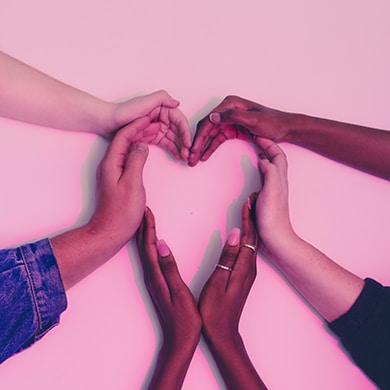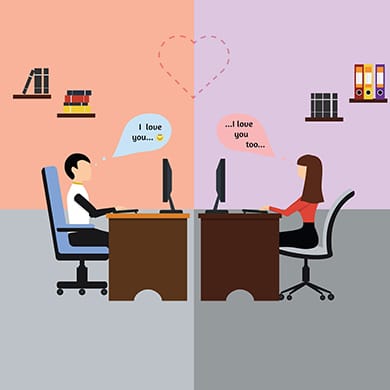

Mental health difficulties are extremely common. Many estimates suggest as many as 1 in 4 people suffer from some type of mental health issue at some point in life. Chances are, you’ve either faced such struggles yourself, or you know someone who has. However, if you love someone, a friend, a partner or a family member, who has anxiety or depression, you may be wondering how you can possibly help. It’s common to worry about saying or doing the wrong thing or to withdraw out of concern that you’ll somehow “make things worse” for the person.
There are healthy ways to cope with depression, many of which can dramatically boost the likelihood of significant recovery. Plus, you can help your loved ones to cultivate these coping mechanisms. In this guide, we’ll explore the best ways to help someone with depression and offer concrete tips for implementing these methods in your relationships. So, keep reading to find out how to help someone with depression and anxiety today.
Before we look at to help someone with anxiety and depression, let’s first get clear on what these two mental health issues involved. While they’re often seen in conjunction, they’re quite different.
You’ll often see depression present with the following symptoms:
Meanwhile, anxiety can often give rise to these symptoms:
If you or someone you love experiences these symptoms, it’s important to see a doctor for a problem evaluation. Never just rely on self-diagnosis.
Armed with a better idea of what depression and anxiety typically involve, we can move on to look at how to help loved ones who are struggling with these types of issues.
Firstly, you should be aware that even when you want to help someone with depression or anxiety, it’s vital to be sensitive to what kind of help they want. Some people will be grateful for any assistance, while others will find it difficult to accept help and may feel embarrassed or weak. If you’re ever in doubt, check in with your loved one and simply ask if they are comfortable with what you’re offering. This is always better than a pushy, domineering approach.
The following seven ideas are all about subtle but powerful ways you can make a difference, just by being mindful of how you behave and speak when you’re with someone who has anxiety or depression.
Keep reading to discover how to help someone with depression and anxiety.
 1. Don’t Judge Or Criticize
1. Don’t Judge Or CriticizeFrom the outside, you’ll be able to see lots of ways in which your loved one could improve their life. However, when they’re depressed or anxious, it can be almost impossible for them to think rationally about these topics. So, whether you’re trying to figure out how to help your spouse with depression or how to help your friend with depression, avoid negative judgments and critical comments at all costs.
In particular, you should avoid platitudes masquerading as advice, such as “You just need to remember that the glass isn’t half empty, it’s half full!”.
Before you say anything, make sure it doesn’t accidentally imply that the person is making a choice to be anxious or depressed.
Mental health issues are just like any other, physical health problem; they are involuntary. Suggesting otherwise can make your loved one feel guilty, misunderstood or isolated. All of these feelings make depression and anxiety symptoms worse, not better.
Part of your process of working to help a friend with depression or anxiety should involve a commitment to learning about their struggles. So, if you’ve never had these types of problems before, read all about them. Don't just research the symptoms covered above, but also natural remedies for anxiety, common anxiety triggers, medical treatments, therapeutic approaches, and so on.
Once you deepen your understanding in this way, you’ll be much more likely to know what your loved one needs and to be able to offer it to them.
Learning about mental health can also stop you from making lots of mistaken assumptions that can inadvertently cause harm.
For example, you might just assume that if you see your friend looking happy and vibrant, this means their depression is in the past. However, if you’ve researched depression, you’ll know that one good day doesn’t indicate a “cure”, and assuming it does can set the person back.

When trying to help someone with depression and anxiety, it’s so important to be patient, even when it’s hard. Your friend, partner or family member needs to know that your support isn’t conditional. You’re not going to disappear if their depression or anxiety lasts a long time. Instead, you’re with the person for the long haul.
When you’re patient and kind, you send the message that it doesn’t matter how many months or years it takes the person to get better, you’ll still be there.
This is also important when considering how to help someone with an anxiety attack. Don’t try to shock the person out of it (or expect them to snap themselves out if it).
Instead, adopt a calm, soothing voice and help them to breathe slowly and evenly. If there’s even a hint that you’re annoyed or impatient, this can prolong the anxiety attack and create longer-term worries about being burdensome.
Arguably, there’s nothing more important you can do for someone with mental health issues than to simply listen.
This doesn’t mean offering advice, turning the subject to yourself or someone else you know, or trying to tell the person how they should feel. Instead, it involves sitting with your loved one and trying to imagine what it’s like to be in their shoes, demonstrating that empathy. You might feel like this isn’t enough, but it’s incredibly effective.
What you want to cultivate is active listening. This involves certain skills that constantly communicate care, interest, and understanding.
Physically, you can use cues like nodding, maintaining eye contact, and leaning in towards the person.
Verbally, you can paraphrase or summarize what they’ve said, proving that you “get it”. This means a lot more than simply saying that you understand, and it also opens avenues for the person to correct you if you aren’t quite getting what they’re saying just yet.
 5. Stay In Contact
5. Stay In ContactWhen people are depressed or anxious, they can stop asking other people to do things because they worry about bringing down the group mood.
Their low self-esteem can also lead them to assume their presence isn’t valued, so they may fade into the background and expect to be forgotten.
Similarly, they may not want to initiate plans in order to avoid social situations.
This is why it’s helpful for you to make an effort to invite your loved one to do things with you. It’s especially useful if you can think of things that might stimulate their interest or make them feel good, but any contact at least reminds the person that you care and are thinking of them.
Sometimes, you’ll find that your loved one doesn’t feel up to doing things. It can be okay to offer gentle encouragement or highlight some of the pros of joining you, but be careful not to overstep. The person needs to feel welcome to attend, but not judged if they don’t attend.
When you know someone with anxiety or depression, it’s likely that they’ll have multiple episodes of this condition in their lifetime. This means that as a friend, partner or family member, you should be alert to potential triggers that indicate a need for extra support.
Stressors like work problems, divorce, health difficulties, loss or childbirth can all lead to the onset (or resurgence) of anxiety or depression. When these events occur, speak to your loved one more often and judge their state of mind.
Part of learning how to help someone with social anxiety also involves tuning into their social cues. This is a useful skill when dealing with someone who is depressed as well. When you’re doing something together, be alert to signs that they’re experiencing troubling symptoms or need to leave.
For example, regularly check in to say “How are you doing?” and make sure they know that you’re happy to leave at any time.
 7. Be Forgiving
7. Be ForgivingFinally, remember to be forgiving when dealing with a loved one who struggles with their mental health. As noted above, they are not responsible for the neurochemical changes that are changing their behavior, and they wish they didn’t have to deal with the awful symptoms they face.
Consequently, sometimes you might feel hurt or annoyed because of irritability or mood swings and that it’s important to try and quash that reaction. Plus, in most cases, your loved one will later apologize and will likely feel bad about the interaction. Remind yourself that this difficulty isn’t deliberate, and try to forgive.
You may also be called upon to forgive last-minute cancellations, especially when dealing with someone who is anxious. This person may have thought they could tolerate socializing and then later realized they were not feeling robust enough. Do your best to be understanding, and to suggest the possibility for rescheduling when your loved one is feeling a bit better.
If you or a loved one is currently suffering from depression, consider self-hypnosis to help alleviate symptoms and to promote happiness.
Not only can hypnosis influence your subconscious mind and encourage positive thinking, but the hypnotic suggestibility can help other side effects of depression, like sleep problems or self-confidence. In this way, it was a great long-term solution.
“I'm doing an intense transpersonal therapy and I became very curious about hypnotherapy. You and your work are helping me using my time in a very effective way. You have all my gratitude for all the help you and your work bring to my healing process. Big thanks and hugs!”
– Nancy Branconnier, Canada
If you are interested and want to learn more, just click here now.
